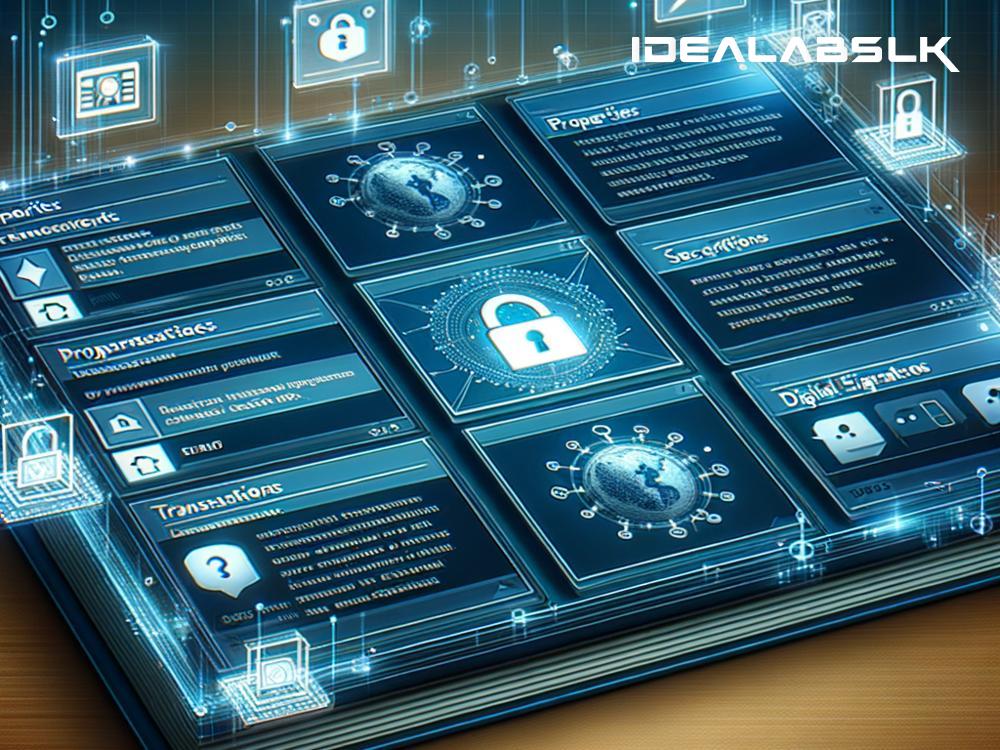Blockchain for Real Estate: A New Dawn in Property Transactions
In the real estate world, where transactions involve hefty amounts and intricate details, the potential for fraud has always been a looming threat. The traditional system, while functional, has shown its fair share of vulnerabilities, ranging from falsified ownership documents to complex property disputes. Enter Blockchain technology, a game-changer that's rapidly transforming the sector by enhancing security and putting a stringent check on property fraud.
Understanding Blockchain: The Basics
Imagine a digital ledger that's accessible by multiple parties but cannot be tampered with or altered by any single entity. That's blockchain in a nutshell. It's the technology behind cryptocurrencies like Bitcoin but has far-reaching applications beyond just digital currencies. Each block in the chain contains transaction details, and once added, it's sealed and linked to the preceding block, creating a secure and transparent sequential chain.
How Blockchain is Shaking Up Real Estate
Blockchain is revolutionizing real estate transactions in several groundbreaking ways:
-
Immutable Records: Once a property transaction is recorded on a blockchain, it becomes virtually impossible to alter. This immutability acts as a deterrent against fraudulent activities, like forging documents or claiming ownership of properties unlawfully.
-
Transparency: With transactions recorded on a publicly accessible ledger, everyone involved – from buyers and sellers to legal entities – can view the transaction history. This transparency ensures that all parties are well-informed and reduces the chances of disputes.
-
Efficiency and Speed: Traditional real estate transactions can be time-consuming, thanks to the paperwork and various approvals needed. Blockchain streamlines this process by making transactions digital and reducing the need for middlemen, significantly cutting down the time to close deals.
-
Smart Contracts: These are self-executing contracts with the terms of the agreement directly written into lines of code. In real estate, smart contracts can automatically enforce and execute agreements when specific conditions are met, like transferring property ownership only after payments are cleared.
-
Tokenization: This refers to the process of converting real estate, or portions of it, into digital tokens that can be traded on a blockchain. It opens up the market to smaller investors by lowering the entry barriers and allows property owners to liquidate assets faster.
Preventing Property Fraud with Blockchain
Property fraud can occur in several forms, from title fraud, where someone illegally claims ownership of a property, to selling properties that don't exist. Blockchain's inherent features effectively mitigate these risks:
-
Verified Ownership: The immutable nature of blockchain records means that once ownership is recorded, it can't be falsely claimed by someone else. Each transaction is also time-stamped, providing a transparent, chronological ownership history.
-
Elimination of Fake Listings: With properties and transactions digitally and publicly recorded, it becomes nearly impossible to list fake properties for sale.
-
Secure Transactions: The encryption technologies used in blockchain provide a high level of security, making it extremely difficult for hackers to tamper with transaction details.
Real-World Applications and Future Prospects
Several countries and companies are already exploring blockchain for real estate. For instance, Sweden's land registry authority has experimented with blockchain to record property transactions. In the commercial sector, platforms like Propy allow global property transactions to be completed online securely, leveraging blockchain.
The future looks promising, with blockchain's potential in real estate still largely untapped. We could see more widespread adoption for not just buying and selling properties but also in areas like property management and leasing.
Simplifying Complex Processes
For those intimidated by the technicalities of blockchain, it's helpful to view it as a highly secure, transparent, and efficient way of conducting transactions. In real estate, this means a system where property ownership is clear and indisputable, transactions are straightforward and fast, and the chances of falling victim to fraud are drastically reduced.
Closing Thoughts
While blockchain in real estate is still evolving, its impact is undeniable. By offering a secure, transparent, and efficient framework, blockchain is not just preventing property fraud but is also paving the way for more inclusive and accessible real estate markets. As we move forward, the fusion of blockchain and real estate holds the promise of reshaping the property landscape for the better, making transactions safer, faster, and more democratic.

